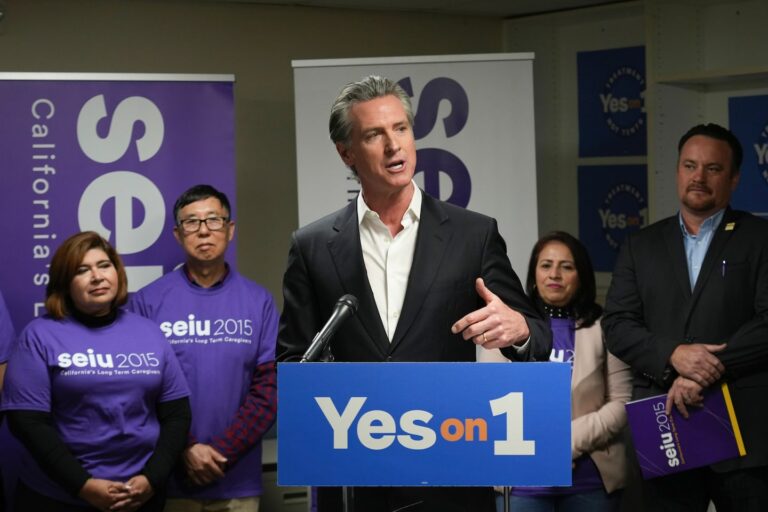Proposition 1 allocates approximately $6.4 billion to build housing and space for mental health care and drug treatment. It amends the Mental Health Services Act of 2004 and is the first major update to California's mental health funding system in his 20 years.
For months, California Governor Gavin Newsom (D) has championed Proposition 1, dubbed “Treatment, Not Tents,” and presented it as a key response to homelessness. According to federal estimates, there will be 181,399 people in the state without housing in 2023, or nearly 30% of the total number of people experiencing homelessness in the country.
On Wednesday, Newsom called the passage of Proposition 1 “a huge victory for doing something fundamentally different.”
“Now it's time to get to work and repair the damage caused by decades of broken promises and neglect of people suffering from severe mental illness,” he said in a statement on X.
While campaigning for Prop. 1, Newsom drew support primarily from local officials, law enforcement and veterans groups, praising the effort as necessary. Take steps to remove Californians from the streets. But opponents of the measure, including taxpayer groups and some mental health advocacy groups, criticized its cost and argued it threatened existing mental health programs.
Last month, multiple ACLU chapters across the state publicly opposed Prop. 1 and urged Californians to vote no.
“We should not fall prey to a false zero-sum game that pits our needs for mental health services and housing against each other,” Eve Garrow, a policy analyst with the ACLU of Southern California, said in a Feb. 16 statement.
The Newsom administration has already spent billions of dollars in recent years to fight homelessness. His various initiatives include the Care His Court program, which allowed states to step in and provide mental health treatment to people experiencing homelessness.
Under the Mental Health Services Act, the state began collecting taxes to pay for mental health services from people with annual incomes of more than $1 million. This tax remains the same, but Proposition 1 allows the tax to be used for drug treatment in addition to mental health care. It would also increase the state's share of taxes, reallocate some funds used for treatment and housing programs, and require states to report on the progress of those programs.
Under Proposition 1, the state would also borrow $6.38 billion in general obligation bonds to fund the program.
California could provide mental health and substance abuse treatment to 6,800 people at a time and build up to 4,350 housing units, about half of which would go to veterans, according to state estimates. Become. But the state's analysis says the new housing would reduce homelessness in California “only slightly.”
The bill was first considered as a separate bill by the California Legislature in February 2023 before being introduced as Proposition 1 this month. The Senate and House bills were passed in September, and the bill was reflected in his March 5 vote, starting a few weeks ago. -Long wait to see if voters approve it.
Asked about the uncertainty of Prop. 1's passage, Newsom highlighted unique aspects of the bill, such as language on housing and drug treatment that differs from the state's previous mental health laws, and that the new measure would not increase taxes. He added that it was not.
He told NBC4 this month that those involved in the effort “thoroughly looked at the needs.”
“This is a game changer,” Newsom said.


